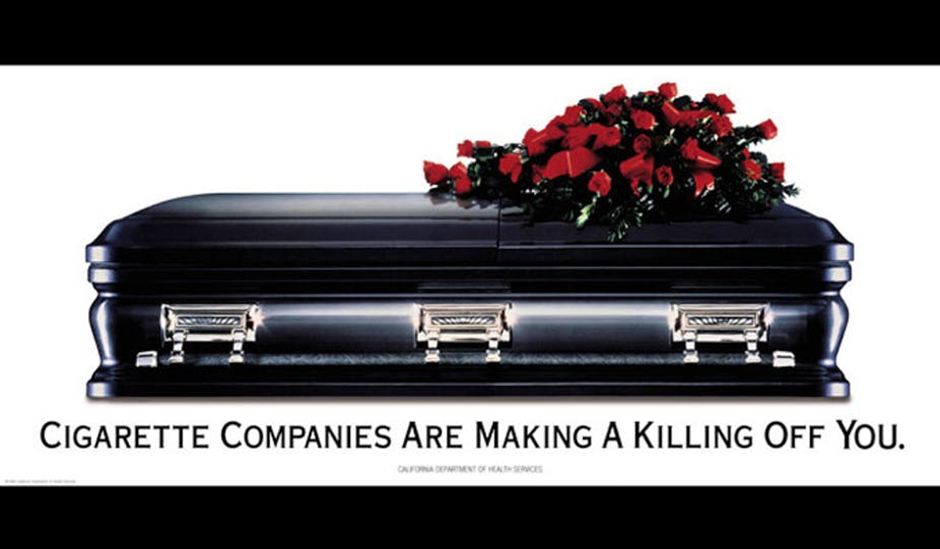References
- Wilson N, Edwards R, Weerasekera D. High levels of smoker regret by ethnicity and socioeconomic status: national survey data. N Z Med J 2009;122(1292):99-100. http://www.ncbi.nlm.nih.gov/pubmed/19448782
- Engin AB, Engin ED, Engin A. Two important controversial risk factors in SARS-CoV-2 infection: Obesity and smoking. Environ Toxicol Pharmacol 2020;78:103411. https://www.ncbi.nlm.nih.gov/pubmed/32422280
- Cattaruzza MS, Zaga V, Gallus S, et al. Tobacco smoking and COVID-19 pandemic: old and new issues. A summary of the evidence from the scientific literature. Acta Biomed 2020;91(2):106-12. https://www.ncbi.nlm.nih.gov/pubmed/32420934
- Alqahtani JS, Oyelade T, Aldhahir AM, et al. Prevalence, Severity and Mortality associated with COPD and Smoking in patients with COVID-19: A Rapid Systematic Review and Meta-Analysis. PLoS One 2020;15(5):e0233147. https://www.ncbi.nlm.nih.gov/pubmed/32392262
- Pranata R, Soeroto AY, Huang I, et al. Effect of chronic obstructive pulmonary disease and smoking on the outcome of COVID-19. Int J Tuberc Lung Dis 2020;24(8):838-43. https://www.ncbi.nlm.nih.gov/pubmed/32912389
- New Zealand Government. Government Response to the Report of the Māori Affairs Committee on its Inquiry into the tobacco industry in Aotearoa and the consequences of tobacco use for Māori (Final Response). Wellington, 2011. Accessed September 21, 2020. https://www.parliament.nz/resource/en-NZ/49DBHOH_PAP21175_1/9f015010d386fe11050cddfbb468c2a3f5b0cb89
- Wilson N, Petrovic-van der Deen FS, Edwards R, et al. Modelling the number of quitters needed to achieve New Zealand’s Smokefree 2025 goal for Maori and non-Maori. N Z Med J 2018;131(1487):30-37. https://www.ncbi.nlm.nih.gov/pubmed/30543609
- Edwards R, Hoek J, Wilson N, et al. Ten things we can learn from new smoking and vaping data about progress to Smokefree Aotearoa 2025. Public Health Expert, December 17, 2019. Accessed September 22, 2020. https://blogs.otago.ac.nz/pubhealthexpert/2019/12/17/ten-things-we-can-learn-from-new-smoking-and-vaping-data-about-progress-to-smokefree-aotearoa-2025/
- Birkett NJ. The impact of taxation reduction on smoking in youth between 1990 and 1999: results from a reconstructed cohort analysis of the Canadian Community Health Surveys. PLoS One 2014;9(4):e93412. https://www.ncbi.nlm.nih.gov/pubmed/24699515
- Sheridan NF, Kenealy TW, Schmidt-Busby JI, et al. Population health in New Zealand 2000-2013: From determinants of health to targets. SAGE Open Med 2015;3:2050312115573654. https://www.ncbi.nlm.nih.gov/pubmed/26770767
- Dawson DB, Fletcher TL. The Influence of Racial/Ethnic Discrimination Experiences on Cigarette Craving for African American and Hispanic Smokers. J Racial Ethn Health Disparities 2020 September 3; https://www.ncbi.nlm.nih.gov/pubmed/32885343
- Crampton P, Salmond C, Woodward A, et al. Socioeconomic deprivation and ethnicity: Both are important for anti-tobacco health promotion. Health Ed Behav 2000;27(8):317-27.
- Siahpush M, Yong H-H, Borland R, et al. Smokers with financial stress are more likely to want to quit but less likely to try or succeed: findings from the International Tobacco Control (ITC) Four Country Survey. Addiction 2009;104(8):1382-90.
- Māori Affairs Select Committee. Inquiry into the tobacco industry in Aotearoa and the consequences of tobacco use for Māori: Report of the Māori Affairs Committee. Wellington: New Zealand Parliament, November 2010. Accessed June 9, 2020. https://www.parliament.nz/en/pb/sc/reports/document/49DBSCH_SCR4900_1/inquiry-into-the-tobacco-industry-in-aotearoa-and-the-consequences
- Thornley L, Edwards R, Waa A, et al. Achieving Smokefree Aotearoa by 2025. Wellington: University of Otago, Quitline Group Trust, Hāpai te Hauora, August 2017. https://aspire2025.files.wordpress.com/2017/08/asap-main-report-for-web2.pdf
- Cohen JE, de Guia NA, Ashley MJ, et al. Predictors of Canadian legislators’ support for tobacco control policies. Soc Sci Med 2002;55(6):1069-76. https://www.ncbi.nlm.nih.gov/pubmed/12220090
- Rouch G, Thomson G, Wilson N, et al. Public, private and personal: qualitative research on policymakers’ opinions on smokefree interventions to protect children in ‘private’ spaces. BMC Public Health 2010;10:797. http://www.ncbi.nlm.nih.gov/entrez/query.fcgi?cmd=Retrieve&db=PubMed&dopt=Citation&list_uids=21194440
- Edwards R, Carter K, Peace J, et al. An examination of smoking initiation rates by age: results from a large longitudinal study in New Zealand. Aust N Z J Public Health 2013;37(6):516-9. https://www.ncbi.nlm.nih.gov/pubmed/24892149
- Gifford H, Tautolo el S, Erick S, et al. A qualitative analysis of Maori and Pacific smokers’ views on informed choice and smoking. BMJ Open 2016;6(5):e011415. https://www.ncbi.nlm.nih.gov/pubmed/27188813
- Gray RJ, Hoek J, Edwards R. A qualitative analysis of ‘informed choice’ among young adult smokers. Tob Control 2016;25(1):46-51. https://www.ncbi.nlm.nih.gov/pubmed/25192770
- Hoek J, Ball J, Gray R, et al. Smoking as an ‘informed choice’: implications for endgame strategies. Tob Control 2017;26(6):669-73. https://www.ncbi.nlm.nih.gov/pubmed/27777326
- Pechacek TF, Nayak P, Slovic P, et al. Reassessing the importance of ‘lost pleasure’ associated with smoking cessation: implications for social welfare and policy. Tob Control 2018;27(e2):e143-e51. https://www.ncbi.nlm.nih.gov/pubmed/29183920
- Crosbie E, Thomson G. Regulatory chills: tobacco industry legal threats and the politics of tobacco standardised packaging in New Zealand. N Z Med J 2018;131(1473):25-41. https://www.ncbi.nlm.nih.gov/pubmed/29649194
- Thomson G, Wilson N, Howden-Chapman P. The use and misuse of health research by politicians during the development of a national smokefree law. Aust N Z Health Policy 2007;4:24.
- Waa AM, Hoek J, Edwards R, et al. Analysis of the logic and framing of a tobacco industry campaign opposing standardised packaging legislation in New Zealand. Tob Control 2017;26:629-633. https://www.ncbi.nlm.nih.gov/pubmed/27694401
- Edwards R, Peace J, Hoek J, et al. Majority support among the public, youth and smokers for retail-level controls to help end tobacco use in New Zealand. N Z Med J 2012;125(1357):169-74. https://www.ncbi.nlm.nih.gov/pubmed/22854372
- Wilson N, Edwards R, Thomson G, et al. High and increased support by Maori and non-Maori smokers for a ban on point-of-sale tobacco displays: national survey data. N Z Med J 2010;123(1317):84-6.
- Wilson N, Weerasekera D, Blakely T, et al. What is behind smoker support for new smokefree areas? National survey data. BMC Public Health 2010;10:498. http://www.ncbi.nlm.nih.gov/entrez/query.fcgi?cmd=Retrieve&db=PubMed&dopt=Citation&list_uids=20718985
- Wilson N, Weerasekera D, Edwards R, et al. Characteristics of smoker support for increasing a dedicated tobacco tax: National survey data from New Zealand. Nicotine Tob Res 2010;12:168-73.
- Edwards R, Wilson N, Peace J, et al. Support for a tobacco endgame and increased regulation of the tobacco industry among New Zealand smokers: results from a National Survey. Tob Control 2013;22(e1):e86-93. https://www.ncbi.nlm.nih.gov/pubmed/22535362
About the Briefing
Public health expert commentary and analysis on the challenges facing Aotearoa New Zealand and evidence-based solutions.
Subscribe

Public Health Expert Briefing
Get the latest insights from the public health research community delivered straight to your inbox for free. Subscribe to stay up to date with the latest research, analysis and commentary from the Public Health Expert Briefing.

